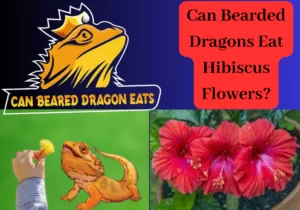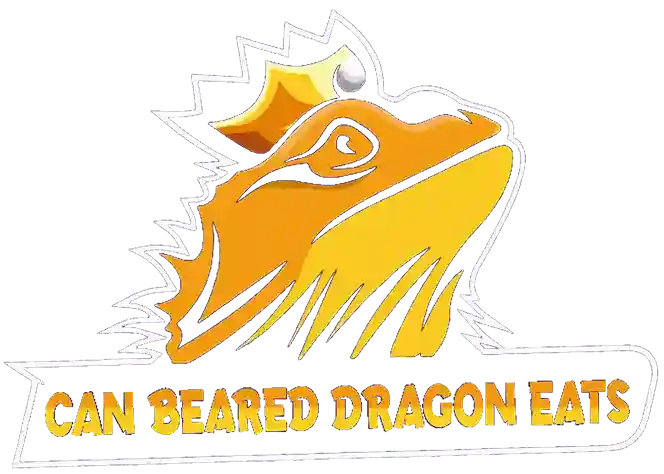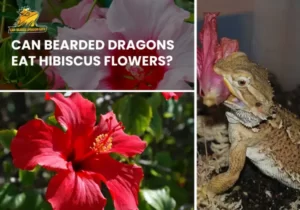I am always looking for new ways to keep him happy and healthy. Recently, while enjoying a lazy evening on my lawn, I couldn’t resist the opportunity to see the dynamic hibiscus flowers sprouting in my nursery. It made me think, “Can bearded dragons eat hibiscus flowers?”
Fascinated, I delved into research and consulted with my trusted veterinarian to find out more. And guess what? The answer is yes! Bearded dragons can indeed enjoy hibiscus flowers as a treat. However, as with any dietary choice. I’ll be sharing my personal experiences and insights on the nutritional benefits of hibiscus flowers for bearded dragons and the potential risks associated with incorporating this exotic bloom into their diet.
From valuable nutrients to potential pitfalls, Let’s ensure our beloved bearded dragons can indulge in a floral feast while staying happy and healthy!
Read more : Can bearded dragons eat Swiss chard?
Are Hibiscus Flowers Safe for Bearded Dragons to Eat?
The nutritional benefits of hibiscus flowers for bearded dragons are worth considering when incorporating them into their diet. Here are some key points to keep in mind:
Rich in Vitamin C
Hibiscus flowers are a good source of vitamin C, which is essential for the immune system and overall health of bearded dragons. Vitamin C acts as an antioxidant, helping to protect cells from damage and promote healthy growth and development in bearded dragons.
High in Fiber
Hibiscus flowers are also rich in dietary fiber, which aids in digestion and helps prevent constipation in bearded dragons. Fiber promotes gut health and can help regulate bowel movements, ensuring smooth digestion and preventing any digestive issues in bearded dragons.
Hydrating Properties
Hibiscus flowers have high water content, which can be beneficial for bearded dragons, especially during hot weather or when they are shedding. Adequate hydration is crucial for bearded dragons to maintain healthy bodily functions, including proper digestion, kidney function, and temperature regulation.
Natural Source of Antioxidants
Hibiscus flowers contain natural antioxidants, such as anthocyanins and flavonoids, which can help neutralize harmful free radicals in the body and reduce inflammation. Antioxidants play a crucial role in promoting overall health and well-being in bearded dragons.
Varied Nutrient Profile
In addition to vitamin C and fiber, hibiscus flowers also contain other essential nutrients such as calcium, iron, and phosphorus, which are important for the overall health and development of bearded dragons.
It’s important to note that while hibiscus flowers can provide some nutritional benefits, they should be offered to bearded dragons as occasional treats and not as a staple food in their diet.
What kinds of hibiscus flowers can Bearded Dragons eat?
When it comes to feeding hibiscus flowers to bearded dragons, it’s important to be mindful of the types of hibiscus flowers that are safe for them to consume. Here are some guidelines to follow:
Hibiscus Rosa-Sinensis
Also known as the Chinese hibiscus or the tropical hibiscus, Hibiscus rosa-sinensis is one of the most common hibiscus flowers safe for bearded dragons to eat. It is widely available in many colors and is a popular choice for ornamental gardens.
Hibiscus Sabdariffa
Hibiscus sabdariffa, also known as Roselle or Jamaican sorrel, is another type of hibiscus flower that is safe for bearded dragons to consume. It is often used in culinary applications and has a tangy flavor.
Hibiscus Moscheutos
Commonly known as the rose mallow or swamp rose mallow, Hibiscus moscheutos is another type of hibiscus flower that is considered safe for bearded dragons to eat. It is native to North America and is known for its large, showy flowers.
It’s important to note that while these types of hibiscus flowers are generally safe for bearded dragons to eat, it’s essential to ensure that they are organic, free from any pesticides or chemicals, and thoroughly washed before offering them to your bearded dragon.
Potential Risks of Feeding Hibiscus Flowers to Bearded Dragons:
Feeding hibiscus flowers to bearded dragons may come with potential risks that should be considered. Here are some important points to be aware of:
Oxalates
Hibiscus flowers contain oxalates, which are naturally occurring compounds that can bind with calcium and form crystals. High levels of oxalates in the diet can lead to calcium deficiency or metabolic bone disease in bearded dragons, which can cause serious health issues.
Pesticides
Hibiscus flowers that are purchased from stores or collected from gardens may have been treated with pesticides, which can be toxic to bearded dragons. It’s important to ensure that any hibiscus flowers offered to bearded dragons are organic and free from any chemical treatments.
Allergies
Just like humans, bearded dragons can have allergies too. Some bearded dragons may develop allergies or sensitivities to certain plants, including hibiscus flowers. It’s important to observe your bearded dragon for any signs of allergic reactions, such as skin irritations or respiratory issues when introducing hibiscus flowers or any new food into their diet.
Digestive Issues
While hibiscus flowers are high in fiber, they can also be tough and difficult for bearded dragons to digest, especially if they are offered in large quantities. Consumption of hibiscus flowers in excess may cause digestive issues such as bloating, gas, or even impaction in bearded dragons.

How Often Should Bearded Dragons eat hibiscus flowers?
Feeding hibiscus flowers to bearded dragons should be done in moderation and as part of a varied and balanced diet. Here are some guidelines on how often bearded dragons can eat hibiscus flowers:
Occasional Treat
Hibiscus flowers should be considered an occasional treat for bearded dragons due to their low nutritional value. They are not a staple food and should not make up a significant portion of their diet. Offer hibiscus flowers to your bearded dragon as a treat, along with a diverse range of other vegetables, fruits, and insects.
Rotation with Other Foods
Bearded dragons require a balanced diet that includes a variety of foods to meet their nutritional needs. Hibiscus flowers can be rotated with other safe and nutritious foods such as leafy greens, vegetables, fruits, and insects. This ensures that your bearded dragon gets diverse nutrients from different food sources.
Moderation
While hibiscus flowers are safe for bearded dragons to eat, they should be fed in moderation. Too much of any single type of food, including hibiscus flowers, can lead to an imbalanced diet and potentially cause health issues. Depending on your bearded dragon’s size, age, and overall health, offer hibiscus flowers sparingly, a few times a week, or less.
Observation and Adjustments
Observe your bearded dragon’s behavior, appetite, and overall health after feeding hibiscus flowers. If you notice any signs of digestive issues, allergies, or changes in their behavior or health, adjust the frequency or amount of hibiscus flowers offered accordingly.
Can Bearded Dragons Eat Dried Hibiscus Flowers?
Bearded dragons technically consume dried hibiscus flowers, but it is not suitable as their primary source of nutrition. Dried flowers may be harder to digest and may lack the same nutritional value as fresh flowers. Fresh hibiscus flowers are preferred for their higher moisture content, which can aid in hydration and better nutrient availability.
It’s important to ensure that the majority of a bearded dragon’s diet consists of fresh, balanced, and nutritionally appropriate foods to support their health and well-being.
Can Bearded Dragons Eat Hibiscus Leaves?
Bearded dragons tend to focus on insects and vegetables as they are primarily omnivorous and. Bearded dragons have specific dietary requirements, and a diet consisting primarily of mint leaves may not fulfill their nutritional needs.
Therefore, it’s best to stick to feeding bearded dragons fresh hibiscus flowers as an occasional treat and avoid offering them hibiscus leaves as a staple food source. Consulting with a reptile veterinarian or an experienced reptile nutritionist can provide personalized guidance on appropriate feeding practices for your bearded dragon.
Read More Articles
Can Bearded Dragons Eat Apple?
Can Bearded Dragons Eat meal worms?
The Bottom line For Can Bearded Dragons Eat Hibiscus Flowers?
While bearded dragons are known to enjoy a varied diet that includes insects, vegetables, and fruits, celery leaves, hibiscus leaves are not typically recommended as a staple food for them. Bearded dragons are primarily omnivorous and may not efficiently digest high-fiber leaves which can potentially lead to digestive issues. Hibiscus leaves do not provide the necessary nutrients in the right proportions for optimal health. It’s important to ensure that bearded dragons receive a balanced and nutritionally appropriate diet to meet their specific dietary requirements.
- Eastern Bearded Dragon - July 26, 2024
- Why Do Bearded Dragons Bob Their Heads? - July 25, 2024
- Everything You Need to Know About Paradox Bearded Dragons - July 10, 2024

